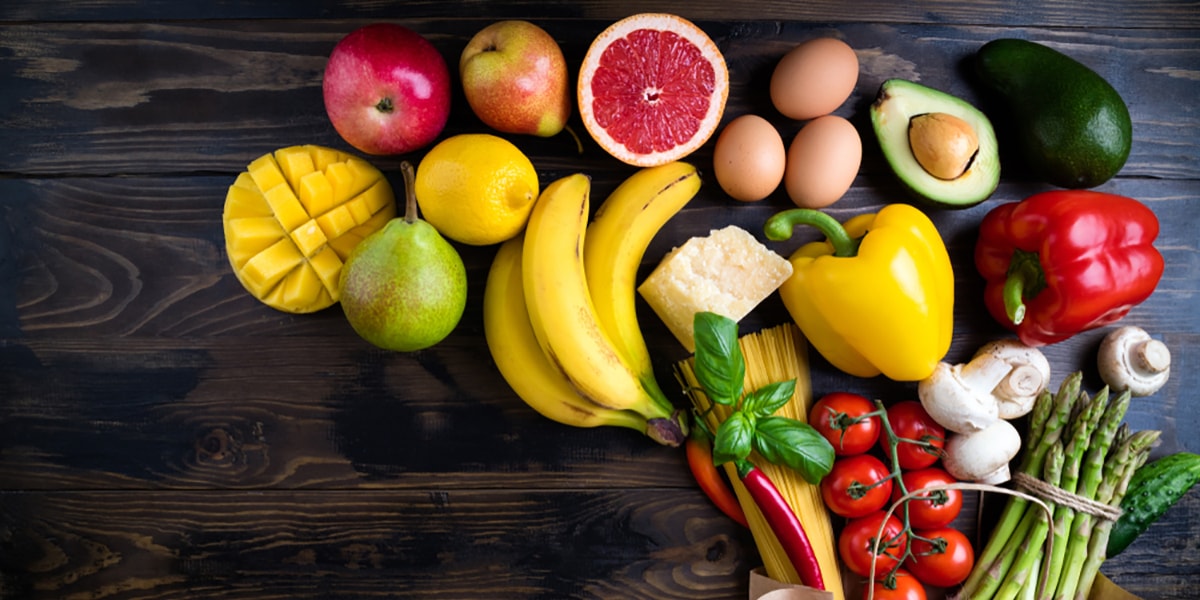[vc_row][vc_column width=”1/6″][/vc_column][vc_column width=”2/3″][vc_column_text]Family cleaning kitchen together
Science shows that everyday, delicious whole foods can put health-improving benefits on your plate. Choose the improvement you want and shop for tasty foods that are good for improving mood, energy, metabolism and memory. “Food can reshape our medical destinies for the better,” says David Katz, MD, director of the Yale Prevention Research Center.
For mood: walnuts & asparagus
Walnuts deliver a high amount of the amino acid tryptophan, which the body uses to create serotonin, a natural mood-regulator. Plus, your body digests walnuts slowly, which helps you tolerate stress.
Asparagus contributes to good mood with the B-vitamin folate. This vitamin helps the body synthesize neurotransmitters dopamine, serotonin, and norepinephrine, which all contribute to good mood.
For weight loss: spring garlic & legumes
Spring garlic tastes milder and sweeter than the dried white bulbs available year-round, making it easy to consume more. (It can even be enjoyed raw.) When you eat more garlic, you’ll get more of the aromatic compound allicin, which contributes to making you feel sated sooner and gives garlic its distinct, delicious smell.
Legumes work two ways to contribute to weight loss.
The high fiber content makes your body work harder to digest legumes, burning calories just by eating. And the protein in legumes sends satisfaction messages to your brain’s hunger center.
For energy: spinach & artichoke
Spinach leaves are a great source of iron, which red blood cells need to deliver energizing oxygen to muscles. These greens also increase the efficiency of your cells’ energy-producing mitochondria.
Artichokes are rich in magnesium, a mineral that’s part of your body’s energy-generating biochemical reactions–along with more than 300 other functions. Adequate magnesium helps your muscles react faster and endure longer.
For skin: salmon & strawberries
Salmon provides an omega-3 fatty acid, elcospentaenoic acid (EPA) that blocks the release of collagen-reducing enzymes that are otherwise induced by exposure to UV rays. Strawberries are rich in antioxidants that help skin repair damage caused by exposure to pollution and UV rays.
For memory: eggs & blueberries
Egg yolks are full of choline, which your body uses to produce acetylcholine, a brain chemical that helps you store memory. Blueberries contain anthocyanins, shown to increase signals between brain cells and enhance learning and memory.
At Full Circle Market, we love sharing healthy food with all its benefits.
Source:
[/vc_column_text][/vc_column][vc_column width=”1/6″][/vc_column][/vc_row][vc_row el_id=”news-page-list”][vc_column][vc_empty_space][vc_custom_heading text=”See More” font_container=”tag:h2|text_align:center” google_fonts=”font_family:Shadows%20Into%20Light%3Aregular|font_style:400%20regular%3A400%3Anormal”][vc_empty_space][vc_basic_grid post_type=”post” max_items=”2″ element_width=”12″ orderby=”rand” item=”8536″ grid_id=”vc_gid:1557890391242-0e440191-7972-7″ taxonomies=”28″ el_class=”news-grid”][vc_empty_space][/vc_column][/vc_row]


